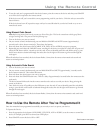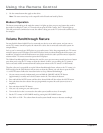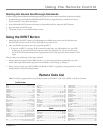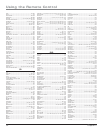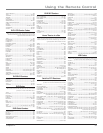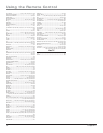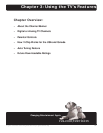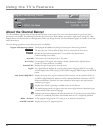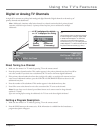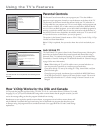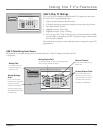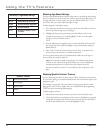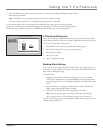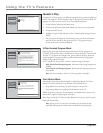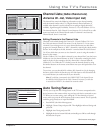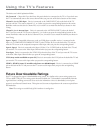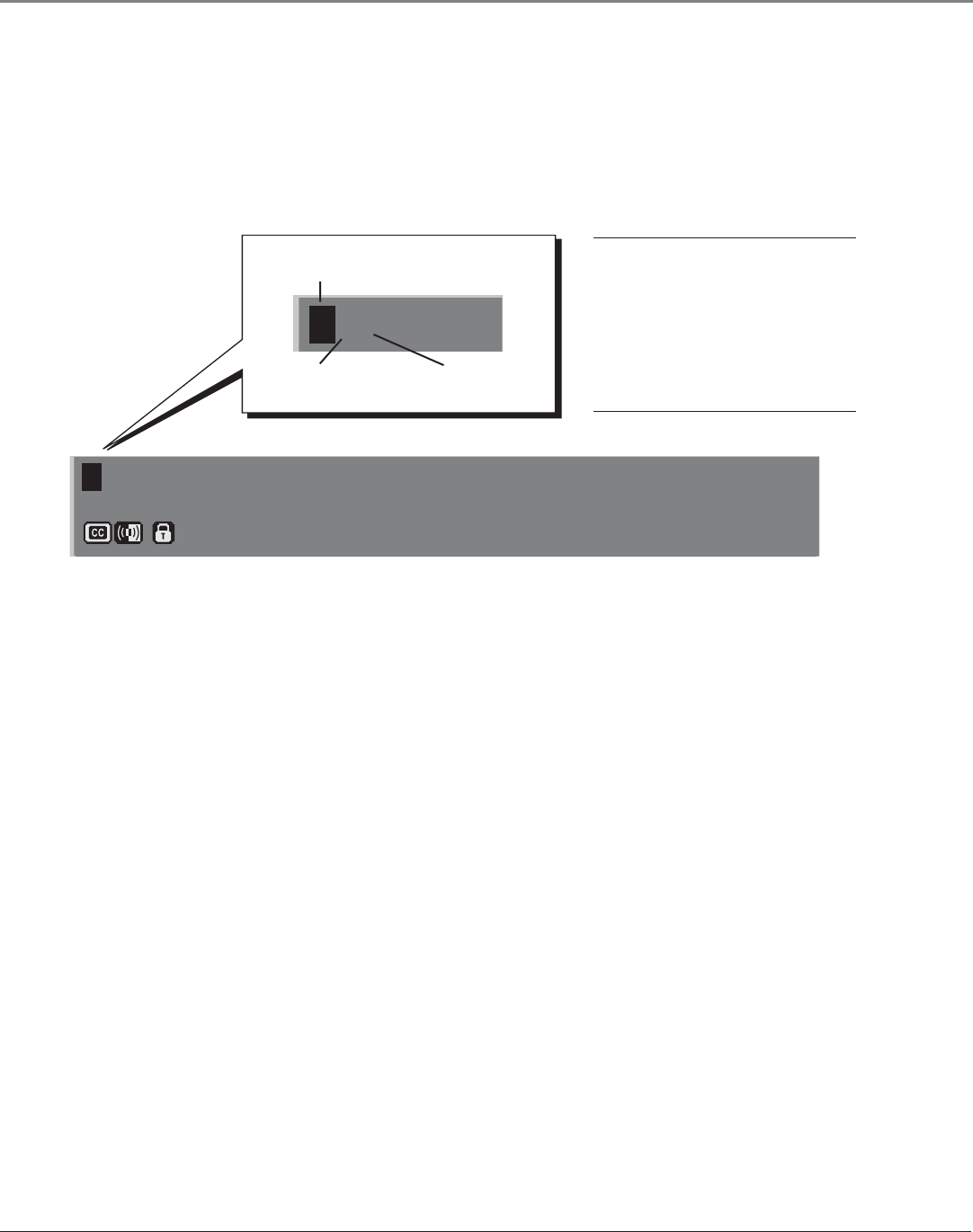
Using the TV’s Features
Chapter 3 39
Cable Input
16x9 Normal 1080i HDTV
English
MPAA - Not Rated 12:00 PM - 1:00 PM
D
6-1 DNLJ
Digital or Analog TV Channels
A single off-air antenna can pick up both analog and digital channels. Digital channels can be made up of
primary channels and subchannels.
Note: Subchannels (sometimes called minor channels) are channels associated with the primary channel
(sometimes called the major channel). A primary channel may have just one subchannel or multiple
subchannels.
Direct Tuning to a Channel
1. Make sure the remote is in TV mode by pressing TV on the remote control.
2. Enter the primary channel number. This number appears in the primary channel entry box. Press OK or
wait a few seconds. If you don’t enter a subchannel, the TV tunes to the lowest digital subchannel.
3. If the primary channel number has fewer than six digits (for cable), or two digits (for antenna) and you
want to enter subchannel numbers, press the SUB CH or SUBCHANNEL button to advance to the
subchannel entry box.
4. Enter the number of the subchannel. This number appears in the subchannel entry box.
5. Press OK to tune to the channel or wait a few seconds and the TV tunes to the channel.
Notes: You can always use the channel up and down buttons on the remote control to change channels
within the TV mode.
If you wait too long before entering the subchannel, the TV tunes to the lowest digital subchannel.
Getting a Program Description
1. Make sure the remote is in TV mode by pressing TV on the remote control.
2. Press the INFO button on the remote twice. If the information is available from the broadcaster, a
program description will appear.
Primary
Channel
Subchannel
(if necessary)
Tip:
Use the channel banner to determine whether
a channel is digital or analog. A digital (ATSC
or QAM) channel displays a “D” before the
channel and may have a dash and second
number after it (e.g., 21-1); an analog channel
(NTSC) displays an “A” before the channel and
only has one channel number (e.g., Ch 21).
Elih
D
6-1 DNLJ
A “D” is displayed for digital;
an “A” is displayed for analog



